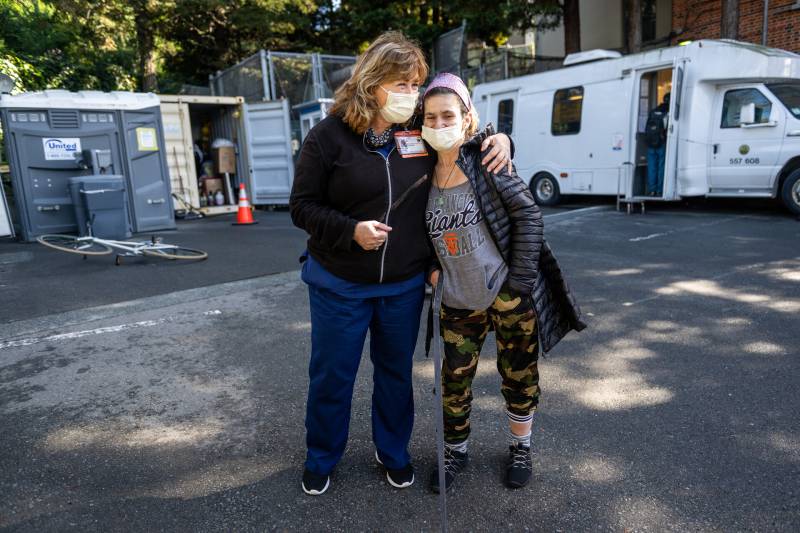San Francisco’s mobile opioid treatment clinics were set up as a way to address overcrowding at San Francisco General Hospital during the beginning of the COVID-19 pandemic. These vans distribute methadone, a medication used to reduce withdrawal symptoms — while offering program patients snacks, water and canisters of naloxone, an overdose-reversal nasal spray.
In San Francisco alone, nearly 2,000 people have died of drug overdoses since 2020. And surprisingly, these temporary mobile clinics are drawing more patients than SF General’s indoor treatment clinics. Now, the people who run it want to find a way to keep them around.
Guest: Sydney Johnson, KQED reporter
